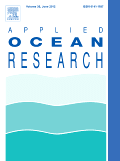
APPLIED OCEAN RESEARCH
Scope & Guideline
Fostering Excellence in Marine Technology Research
Introduction
Aims and Scopes
- Ocean Engineering and Design:
Research in this area encompasses the design, analysis, and optimization of marine structures, including offshore platforms, vessels, and underwater vehicles, focusing on their performance under various environmental conditions. - Hydrodynamics and Fluid Dynamics:
This includes studies on wave-structure interactions, fluid dynamics around marine structures, and novel computational methods such as Computational Fluid Dynamics (CFD) to analyze these phenomena. - Marine Renewable Energy:
The journal covers innovations in renewable energy technologies, particularly wave energy converters, tidal energy systems, and the integration of these technologies into coastal and ocean environments. - Environmental Impact and Management:
Research addressing the ecological impacts of marine engineering projects, including sediment transport, biofouling, and the sustainability of marine resources. - Marine Robotics and Autonomous Systems:
This area focuses on the development and application of autonomous underwater vehicles (AUVs), unmanned surface vehicles (USVs), and their control systems for various marine applications. - Geotechnical and Structural Engineering:
Studies on soil-structure interactions, foundation design for offshore structures, and the impact of marine geology on engineering practices.
Trending and Emerging
- Data-Driven Approaches and Machine Learning:
There is a growing trend towards utilizing machine learning and artificial intelligence for predictive modeling, data analysis, and optimization in marine environments, enhancing the accuracy and efficiency of oceanographic studies. - Integrated Marine Systems:
Research that combines multiple marine technologies, such as hybrid energy systems and multi-functional marine structures, is increasingly prevalent, reflecting a trend towards more sustainable and efficient solutions. - Real-Time Monitoring and Smart Technologies:
The use of real-time monitoring systems, including IoT and smart sensor networks, is on the rise, emphasizing the need for immediate data acquisition and analysis in marine operations. - Climate Change Impact Studies:
Research addressing the effects of climate change on marine environments, including sea-level rise, ocean acidification, and the sustainability of marine ecosystems, is becoming increasingly important. - Hydrodynamic Performance Optimization:
Studies focusing on the optimization of hydrodynamic performance for various marine applications, such as vessels and offshore structures, are trending as the industry seeks to enhance efficiency and reduce environmental impact.
Declining or Waning
- Traditional Marine Navigation Systems:
With the advent of advanced sensor technologies and machine learning, traditional navigation methodologies have become less prominent in recent publications, as researchers shift towards more automated and intelligent systems. - Static Structural Analysis:
Research focusing solely on static analysis of marine structures has decreased, giving way to dynamic and coupled analyses that consider the influence of environmental forces over time. - Conventional Wave Energy Conversion:
As the field progresses, there has been a noticeable shift away from traditional wave energy converters towards more innovative designs and hybrid systems that integrate multiple energy sources. - Simplistic Environmental Assessments:
Studies that provide basic environmental assessments without complex modeling or comprehensive impact analysis are becoming less common, as more rigorous methodologies are favored.
Similar Journals
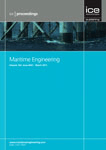
PROCEEDINGS OF THE INSTITUTION OF CIVIL ENGINEERS-MARITIME ENGINEERING
Exploring Innovations in Maritime Practices.PROCEEDINGS OF THE INSTITUTION OF CIVIL ENGINEERS-MARITIME ENGINEERING, published by Emerald Group Publishing Ltd, is a leading journal in the field of Maritime Engineering. With a reputable ISSN of 1741-7597 and an E-ISSN of 1751-7737, this journal has established itself as a cornerstone for researchers, professionals, and students keen to explore the complexities of ocean engineering. Operating primarily from the United Kingdom, it has made significant contributions to the advancement of the maritime industry since its inception, covering research from 2001 to 2024. The journal currently holds a Q3 ranking in Ocean Engineering as classified by Scopus, where it ranks 21st among 105 journals in the category, placing it in the 80th percentile, which highlights its influence and relevance in contemporary marine research. Through a rigorously peer-reviewed process, the journal publishes innovative and high-quality articles that encompass broad aspects of maritime engineering, including design, construction, and sustainability, thus serving as a vital resource for those engaged in this dynamic field. By fostering dialogue among professionals and providing access to cutting-edge research, the PROCEEDINGS OF THE INSTITUTION OF CIVIL ENGINEERS-MARITIME ENGINEERING continues to shape the future of maritime engineering practice and education.
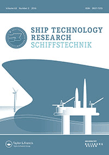
Ship Technology Research
Charting new waters in ship technology research.Ship Technology Research, published by Taylor & Francis Ltd, is a premier journal dedicated to advancing the field of ocean engineering. Established in 1995, this journal provides a critical platform for cutting-edge research, innovative methodologies, and the latest developments in ship technology. With a notable Q2 ranking in the Ocean Engineering category for 2023 and placing in the 70th percentile of Scopus rankings, the journal serves as an essential resource for professionals, researchers, and students aiming to enhance their knowledge and contribute to maritime advancements. The journal not only disseminates high-quality research but also encourages collaboration across disciplines, addressing the real-world challenges faced in ship design, operation, and technology. As a non-open access journal, it continues to uphold rigorous standards, ensuring that published work is both relevant and impactful in fostering innovation in the maritime industry.
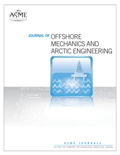
JOURNAL OF OFFSHORE MECHANICS AND ARCTIC ENGINEERING-TRANSACTIONS OF THE ASME
Driving excellence in Arctic engineering research.JOURNAL OF OFFSHORE MECHANICS AND ARCTIC ENGINEERING-TRANSACTIONS OF THE ASME (ISSN: 0892-7219; E-ISSN: 1528-896X) is a premier publication by the American Society of Mechanical Engineers (ASME), dedicated to advancing the field of offshore mechanics and Arctic engineering. Established in 1987 and running through 2025, this journal provides a crucial platform for researchers and practitioners to disseminate their findings in a rapidly evolving sector faced with unique challenges related to energy, ocean engineering, and mechanical engineering. With a notable impact reflected in its Scopus ranks—#224 in Mechanical Engineering and #39 in Ocean Engineering—the journal holds a significant position in the academic community, publishing high-quality peer-reviewed articles that span innovative technologies, safety, and environmental considerations in offshore and Arctic contexts. While currently not adopting an Open Access model, its strategic focus and rigorous standards make it an essential resource for students, professionals, and researchers passionate about expanding knowledge in these critical engineering domains.

Journal of Operational Oceanography
Charting New Waters in Operational OceanographyThe Journal of Operational Oceanography, published by Taylor & Francis Ltd, stands as a pivotal platform within the field of oceanography, focusing on the integration of operational practices, technology, and scientific research. With a strong impact factor and a notable Q2 quartile ranking in the category of Earth and Planetary Sciences, this journal offers researchers, professionals, and students a vital resource for disseminating new knowledge and innovative methodologies related to ocean studies. Covering a range of topics from marine data analysis to the application of oceanographic principles in sustainable practices, the journal’s content is crucial for advancing understanding in this dynamic field. Operating since 2008 and continuing through 2024, it is dedicated to fostering collaboration and dialogue among the scientific community, ensuring accessibility to essential findings that drive informed decision-making in marine science. With its commitment to high-quality, peer-reviewed articles and a ranking in the top 10th percentile of its category, the Journal of Operational Oceanography is an indispensable resource for those looking to make significant contributions to marine research.
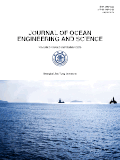
Journal of Ocean Engineering and Science
Unraveling the mysteries of the marine world through science.The Journal of Ocean Engineering and Science, published by Elsevier, is a prominent academic journal dedicated to advancing the field of ocean engineering and environmental sciences. Since its inception as an Open Access journal in 2016, it has rapidly gained recognition, achieving significant impact factor ratings with notable placements in the prestigious Q1 category for Ocean Engineering and Oceanography, and Q2 for Environmental Engineering in 2023. With a remarkable ranking of #3 out of 105 in Ocean Engineering and #4 out of 145 in Oceanography according to Scopus, the journal plays a critical role in disseminating cutting-edge research and innovative solutions addressing complex challenges faced by marine environments. Operating from Amsterdam, Netherlands, the Journal of Ocean Engineering and Science invites contributions from researchers, professionals, and students worldwide, emphasizing the importance of interdisciplinary approaches in achieving sustainable maritime practices.

OCEANOGRAPHY
Fostering Collaboration in Ocean SciencesOCEANOGRAPHY is a premier journal dedicated to the field of ocean sciences, published by the esteemed OCEANOGRAPHY SOC. With an impressive Q1 ranking in Oceanography and a Scopus standing of #25 out of 145 in Earth and Planetary Sciences, this journal serves as a critical platform for disseminating high-quality research. Since its inception in 1992 and transitioning to an Open Access model in 2007, OCEANOGRAPHY has been committed to providing unrestricted access to groundbreaking studies, fostering collaboration and innovation within the international scientific community. Researchers, professionals, and students alike can explore a wide range of topics, including marine ecosystems, ocean circulation, and climatic influences, making it an essential resource for anyone invested in understanding our oceans. With its headquarters in Rockville, MD, USA, it brings together a diverse body of work that is pivotal for advancing knowledge in the critical arena of oceanography.

International Journal of Maritime Engineering
Pioneering Sustainable Solutions for Maritime ChallengesThe International Journal of Maritime Engineering (ISSN: 1479-8751, E-ISSN: 1740-0716), published by UNIV BUCKINGHAM PRESS in the United Kingdom, is a vital resource for the maritime engineering community, addressing pressing issues in both Environmental Engineering and Ocean Engineering. Established in 2006, this journal serves as a platform for disseminating innovative research, technological advancements, and practical solutions that enhance the sustainability and efficiency of maritime operations. With its current classification in the Q3 quartile for both fields in 2023, it offers valuable insights to researchers, professionals, and students who seek to bridge theoretical knowledge with industry applications. Though the journal does not operate under an open access model, it remains an essential reference for academic discourse and advancement in maritime studies through its rigorous peer-review process and high-level research outputs.

JOURNAL OF OCEANOGRAPHY
Bridging Academia and the Ocean's MysteriesJOURNAL OF OCEANOGRAPHY, published by Springer, stands as a leading academic journal in the field, with an impressive Q1 ranking in Oceanography for 2023. Since its inception in 1992, this journal has dedicated itself to the dissemination of high-quality research that spans a diverse array of topics within oceanography and earth sciences. With an ISSN of 0916-8370 and an E-ISSN of 1573-868X, it plays a crucial role in bridging the gap between academia and practical marine applications. The journal is indexed in Scopus, ranking #57 out of 145 in its category, reflecting its rigorous academic standards and the impact of its published works, reaching a notable ile in the 61st percentile. Located in Japan, the JOURNAL OF OCEANOGRAPHY provides a vital platform for sharing significant research findings that contribute to our understanding of marine environments, aiming to foster interdisciplinary collaboration among researchers, professionals, and students dedicated to marine science.
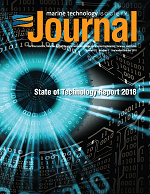
MARINE TECHNOLOGY SOCIETY JOURNAL
Navigating the Future of Marine InnovationMARINE TECHNOLOGY SOCIETY JOURNAL, published by the Marine Technology Society, Inc., serves as a critical forum for advancing the field of marine engineering and oceanography. With a rich history dating back to its inception in 1969 and continuing through various converged years until 2024, this journal is recognized for its contributions to the understanding of marine technologies and their applications. It currently holds a notable Q3 ranking in both Ocean Engineering and Oceanography, as per the 2023 metrics, underscoring its significance in these domains. Although access is not open, the journal rigorously assesses and publishes high-quality research articles, technical notes, and reviews that engage a wide readership of researchers, industry professionals, and students alike. With the journal's aim to disseminate innovative findings and foster dialogue within the marine community, it promises to be an essential resource for anyone looking to explore the dynamic field of marine technology.

JOURNAL OF WATERWAY PORT COASTAL AND OCEAN ENGINEERING
Transforming Research into Practice in Marine EngineeringThe JOURNAL OF WATERWAY PORT COASTAL AND OCEAN ENGINEERING, published by the ASCE - American Society of Civil Engineers, is a premier scholarly journal devoted to the interdisciplinary fields of waterway, port, coastal, and ocean engineering. Since its inception in 1982, the journal has provided a crucial platform for researchers, professionals, and students to share innovative findings and advancements related to the engineering and management of aquatic environments. With an impressive Q2 ranking in multiple categories, including Civil and Structural Engineering, Ocean Engineering, and Water Science and Technology, the journal is recognized for its significant contributions to the field. It seeks to publish high-quality research that addresses both theoretical and practical challenges while promoting sustainable practices in marine and coastal systems. Holding a prominent Scopus rank and providing access to a global readership, the journal stands as an invaluable resource for those dedicated to advancing the science and engineering of water environments.